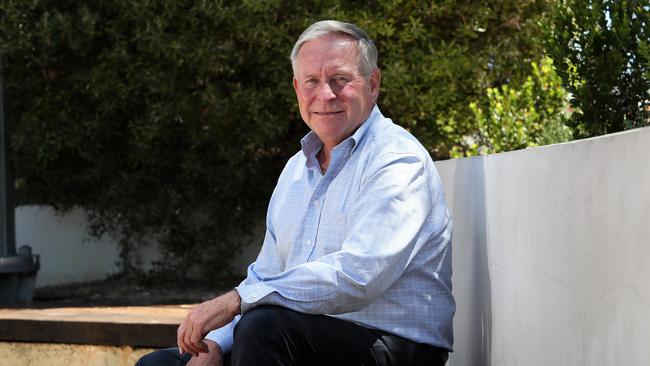Barnett champions $5bn gas pipeline from west
A $5 billion transcontinental gas pipeline could be built without taxpayer funding, according to Colin Barnett.

A $5 billion transcontinental gas pipeline could get off the ground with little or no taxpayer funding if government is able to strike the right policy settings, according to former West Australian premier Colin Barnett.
Mr Barnett will use a speech to the Australian Domestic Gas Outlook conference in Sydney today to spell out how federal and state governments could solve the east coast energy shortage by setting an appropriate framework for a pipeline.
Mr Barnett, who retired from state politics last month after 27 years in office, has been championing a plan for a pipeline that would connect WA’s large gasfields to the energy-hungry east coast market.
“It won’t be cheap gas from the west, but it will be affordable and it will be reliable,” Mr Barnett will say.
“The pipeline will provide security of supply and price, and can be built in a comparatively short period of time.
“What is required from government is a policy commitment to go ahead with the project and a determination to resolve all of the detailed issues that will inevitably arise. After all, it is our gas and our needs come first.”
Mr Barnett estimates the 3000km pipeline would cost about $5bn to build, and could feasibly charge a tariff of $3 per gigajoule of gas.
Wholesale east coast gas prices are trading between $9 and $12 a gigajoule, he said, compared with equivalent prices in WA of between $3.50 and $4 a gigajoule.
Mr Barnett does not expect funding for the project to be a big challenge, and will say the project would appeal to large established Australian energy companies as well as large Australian superannuation funds.
“If any direct government investment of a capital nature is needed to get the project under way, it should be limited to a minority ownership with a buyout option available to the private sector proponent,” he will say.
Mr Barnett will also talk down the case for a liquefied natural gas import terminal on the east coast, describing the idea as one that would “fail the pub test”.
AGL Energy is studying the merits of building an LNG import terminal at Crib Point in Victoria, while billionaire Andrew Forrest is backing a proposal in NSW.
“To freeze gas to a liquid, ship it from one side of Australia to the other, then turn it back to a gas through an expensive regasification plant is clumsy and unnecessary when a pipeline can do the job,” Mr Barnett will say.
“It also means that this source of gas supply will be locked in to international trade and price for LNG, and Australia will have foregone the opportunity of a competitive advantage in energy.”
There is also an emerging view that a long-anticipated international glut in LNG will not be as significant as first feared.
Oil giant Royal Dutch Shell this week forecast that the world was headed for an LNG shortage that would push up prices.
Shell’s head of integrated gas, Maarten Wetselaar, said another $US200bn ($255bn) of investment in new LNG projects was needed to avoid a forecast shortfall in 2030.
Energy Minister Josh Frydenberg late last year announced the government would fund a pre-feasibility study into a west-east pipeline, although WA Premier Mark McGowan — who defeated Mr Barnett in last year’s election — has shown little support for the plan. Mr McGowan has described the project as “highly unlikely” economically, and has indicated he would not support such a plan without meaningful reform of the way GST is divided between the states.


To join the conversation, please log in. Don't have an account? Register
Join the conversation, you are commenting as Logout